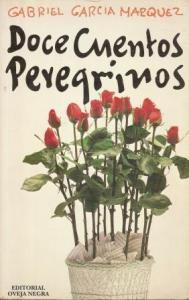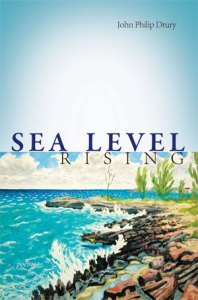Jose Angel Araguz's Blog, page 49
May 22, 2015
* tribute: franz wright
Fathers – Franz Wright
Oh build a special city
for everyone who wishes
to die, where
they might help one another out
and never feel ashamed
maybe make a friend,
etc.
You
who created the stars and the sea
come down, come down
in spirit, fashion
a new heart
in me, create
me again-
Homeless in Manhattan
the winter of your dying
I didnt have a lot of time
to think about it, trying
to stay alive
To me
it was just the next interesting thing you would do-
that is how cold it was
and how often I walked to the edge of the actual
river to join you
***
that is how cold it was –
The turn into this line alone changed the landscape of poetic possibilities for me. I remember holding the book – Walking to Martha’s Vineyard – as if struck by lightning. How to make an already intimate tone cut deeper? It was summer 2011 and I had been working on the series of poems that became my first chapbook, The Wall. There’s a certain bracing of the soul that comes from great poetry. Franz Wright braced me to begin the work of risk and honesty that I continue on this day. *
Wright’s recent passing stunned me, yet I was warmed to see on social media just how many of my compatriots found communion with him, either through reading his work or engaging with him in person or correspondence. I did end up sending him a copy of The Wall, and he sent back a revelation of a letter. For this kindness, and for the earned light of his work, I say thank you.
On Earth – Franz Wright
Resurrection of the little apple tree outside
my window, leaf-
light of late
in the April
called her eyes, forget
forget—
but how
How does one go
about dying?
Who on earth
is going to teach me—
The world is filled with people
who have never died
Happy earthing!
Jose
* To read more about the making of The Wall, go here.
photo source: iO Poetry


May 18, 2015
* new work up at the acentos review

* family trees *
Just a quick post to announce the latest issue of The Acentos Review which includes my poems “Visit” and “Augustina.” Check them out here.
The issue also includes fine work by Heather Flores, Roberto Carlos Garcia, and Natalia Ruiz-Junco among others – check them out here.
Special thanks to Dr. Raina J. León for putting together a great issue!
See you Friday!
Jose


May 15, 2015
* gabriel garcia marquez: a lyrical alignment
This week’s poem is a lyrical alignment from Gabriel Garcia Marquez’s prologue to his short story collection Strange Pilgrims.
In his prologue – entitled “Why Twelve, Why Stories, Why Pilgrims” – Marquez details the journey of his stories, how some have traveled with him for years and others arrived unexpected. I remember marveling at the openness with which he shared his patience with the ineffable act of writing as well as the depth of his memory. He finishes this “story behind the stories” with a short account of a dream he had. It is this account that I’ve decided to lyrically aligned. What moves me most about Marquez’s account of his dream is the innocence of the revelation on mortality he arrives at by the end.
I had a similar revelation while watching Terminator 2 as a kid. Another dream, this one on film: the main character, Sarah Connor, imagines herself standing at a chain-link fence, watching kids play. The entire scene is without sound. Then a nuclear explosion goes off in the distance, which she seems to be the only one aware of. The viewer watches as the blast from the explosion lays waste first to the playground, kids, and then to Sarah, who screams to herself in silence. Young, I replayed this scene over and over before I slept, each time trying to imagine the nothing implied by the silence and black screen at the scene’s end.
Looking back on it, Marquez’s dream of a party is a better scenario :)

* cosas de rosas *
“…I dreamed I was attending my own funeral,” – Gabriel Garcia Marquez
a lyrical alignment from Marquez’s “Strange Pilgrims”
walking with a group of friends
dressed in solemn mourning
but in a festive mood. We all
seemed happy to be together.
And I more than anyone else,
because of the wonderful
opportunity that death afforded me
to be with my friends from Latin America,
my oldest and dearest, the ones
I had not seen in so long. At the end
of the service, when they began to disperse,
I attempted to leave too, but one of them
made me see
with decisive finality
that as far as I was concerned,
the party was over. – You’re the only one
who can’t go – he said. Only then
did I understand
that dying
means never being
with friends again.
***
Happy againing!
Jose


May 8, 2015
* fascination via john philip drury
Last week, I visited my hometown of Corpus Christi, Texas. It was a short trip, long enough to get in good talk and hugs with family as well as plenty of good taqueria food and BBQ. It was also the first chance I’ve gotten to show Ani around the city I grew up in. Unsurprisingly, we kept finding ourselves down along Ocean Drive, watching the water move. Going back this time, I realized how, in some ways, fascination is almost a reflex. If I have a natural measure, it’s in sync to the waters of Corpus Christi Bay.
This week’s poem – “A Boy’s Room” by John Philip Drury – deals with a similar spirit of fascination. The poem details a son’s fascination with insects as experienced by the father. In an email, Drury shared the following story:
I’m pleased that you’ve singled out “A Boy’s Room,” one of several poems in the book about my son Eric. It began with his early fascination with insects and scorpions. Whenever we went to the zoo, he wanted to visit the Insect House, but he was too little to peer into the glass enclosures (such as the big box full of leaf-cutter ants), so I had to carry him, and he hadn’t yet learned to read, so I had to recite the labels identifying every single bug in the whole place. And that happened on every trip we made. Man, I miss those days!
Reading the poem, I’m moved most by the connection between father and son via language. That the father is aware of both the words that fascinate and the words the son “hates.” The tension moves from the careful “fashioning” of insects paralleled with the fashioning of the poem in the first stanza, then into the second stanza’s violent undertones. The people in the house are seen as restless as the insects the son is fascinated with.
What I love about the above story is the image of John carrying his son, much as the house at the end of the poem is “carried” off.

* john’s new book! *
A Boy’s Room – John Philip Drury
With tiny wads of Play-Doh, he has fashioned
scorpions, Io moths, red velvet mites,
water spiders emerging from thick air sacs,
Japanese beetles perched upon white petals.
He places them in his secret gallery –
a Danish Modern liquor cabinet –
to let them dry. He loves assassin bugs
and Congo chafers. He listens for the sound
of hissing cockroaches and tinfoil beetles
clicking against their luminous green shells.
He hates the words “explode” and “blow” and “burst.”
He knows we have a nest of paper wasps
in the kitchen’s ventilator. He knows
we find it odd that people find it odd.
He knows that when we quarrel, the house walls hum
like glassed-in hives of honey bees at the zoo.
He hopes and fears that when the wings beat loudest,
the house will lift above the tall catalpas
and he’ll look down at miniature explosions:
fireflies rising from a darkened crater.
***
Happy rising!
Jose


May 1, 2015
* trash talk with javier etchevarren
I remember a friend of mine in college who toyed around with the idea of basing a short film on the role garbage plays in our day to day life. “In a way,” he said, “we expect a garbage can to save our souls.” We talked for hours on this concept, me bringing up how I have family living on the border, some of whom have lived in shacks on the edges of landfills.
Reading this week’s poem – “Garbage Dump” by Javier Etchevarren – I returned to these ideas on reality as well as the realities that come with these ideas. The stylistic choices Etchevarren makes really come together with the content. The lack of punctuation and capitalization really put an emphasis on the line that isn’t always effective when done by others, but he nails the nuance available in that move. Subtly, the meditation on the social goes beyond the metaphorical to imply an overall gravity to existence that turns the world upside down.

* the view from here *
Garbage Dump – Javier Etchevarren *
dessert for the starving
where there are people there’s garbage
where there are people there’s hope
including the hope to live off garbage
putrefaction central
surplus of misery
the despicable man is the celebrity of throwaways
appliances gone senile, the latest styles in shreds, storm clouds
of plastic, maggot bonfire
to pass through life is to feed a garbage dump
laying out provisions
for an impoverished bacchanal
* translated by Don Bogen
***
Happy bacchanaling!
Jose
p.s Check out more of Don Bogen’s translations of Etchevarren featured on Poetry Daily here.
Etchevarren will five poems total in the upcoming anthology América invertida: an anthology of younger Uruguayan poets.


April 24, 2015
* a meditation on brevity with paz, ritsos, & carruth
Writing – Octavio Paz
I draw these letters
as the day draws its images
and blows over them
and does not return
It’s suiting to begin this meditation on brevity with Paz who once said that he admired the short lyric for being the hardest kind of poem to write. Anyone who’s worked out a haiku or tanka in earnestness knows something of this difficulty. With haiku and tanka there are at least parameters, a spirit to leap after. Often, the short poem is a surprise, something arrived at when you intuit the right time to leave a poem alone.
Triplet – Yannis Ritsos
As he writes, without looking at the sea,
he feels his pencil trembling at the very tip –
it is the moment when the lighthouses light up.
I came across this gem from Ritsos in Stephen Dobyn’s illuminating book “Best Words, Best Order.” In it, Dobyns speaks of the nuanced work of the last line as a “metaphysical moment,” one that suggests “sympathetic affinities and a sensitivity to those affinities on the part of the poet.” The power of a short lyric can be felt when one is reading and feels something like “lighthouses light up” inside the mind.
haiku – Hayden Carruth
Hey Basho, you there!
I’m Carruth. Isn’t it great,
so distant like this?
Ultimately, what is at stake in the short lyric is what is at stake in any poem, the translating/transcribing of the human voice. In a longer poem, one can create an argument via imagery and metaphor, what’s being said accumulates like a wave to a crest. The short lyric is the echo of that argument, the sound of foam chisping on the shore. What is compelling about Carruth’s distance is not that Basho feels it, but the reader does.

* wavering *
Happy shoring!
Jose






